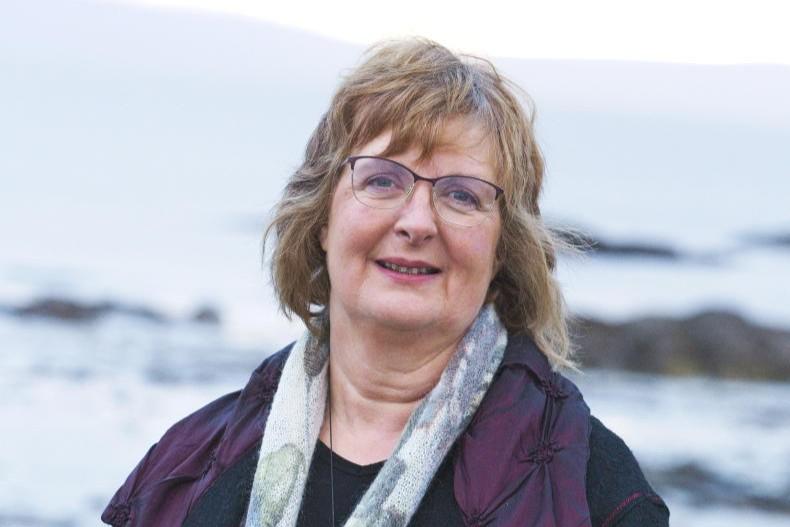That first day of preschool. It’s a momentous day for many but it can also be overwhelming for a three-year-old child.
Should that child have additional needs, every day of preschool can feel like the first, emotional and overwhelming.
Over the past three weeks in Irish Country Living, we have looked in detail at the childcare model in Ireland.
How it has been severely underfunded for decades and how that impacts families in terms of finances, access to places and consequently, the development of children.
For parents of children with additional needs, the challenges are on another level with a significant lack of supports in place for children, parents and their early educators.
Additional needs is a vast and all encompassing term.
Autistic children represent a large cohort of children with additional needs, with 86% gaining their education within the mainstream school setting.
Although that is the focus of this piece, it’s worth noting that the AIM model applies to children with a diverse range of needs and so the situation is reflective of the experiences of many, not just autistic children and their families.
AIM Model
AIM stands for the Access and Inclusion Model, which was introduced in Ireland in 2016.
Its goal is to create a more inclusive environment in preschools, so all children, regardless of ability, can benefit from quality early learning and care.
Speaking to Irish Country Living, Minister for Children Roderic O’Gorman said: “We have a really good support system in place for children with additional needs who are attending the Early Childhood Care and Education Programme (ECCE) and that’s the AIM model.
There are additional financial supports that my department gives to services where there are children with additional needs.
AIM is a seven-step model for the particular needs of the child.
This can be anything from small additional resources to infrastructure changes such as a wheelchair accessible toilet or putting in a ramp as well as additional staff to reduce the ratio of staff to children within the sector. AIM has worked really well.”
So a preschool or creche are well within their rights to says, ‘No, sorry I can’t take your child’ without there being any repercussions
In light of the Minister’s comments and from a Government perspective there is a lot of positivity towards the AIM model.
However, for those working everyday within the sector, the reality tells a very different story.
Fiona Ferris is Deputy Chief Executive of AsIAm, Ireland’s national autism charity and advocacy service.
She says, “AIM may stand for access and inclusion but even getting that creche space or ECCE space is a challenge.
It can be a struggle for parents with a neurotypical child but when you have an autistic child, it can be a real fight.
“That’s because in Ireland, the right to education starts at primary school age.
So a preschool or creche are well within their rights to says, ‘No, sorry I can’t take your child’ without there being any repercussions.
No, it’s not the ethical thing to do or the moral thing to do but it does happen.”
In fact, for some parents, there is an internal debate whether to disclose their child’s condition.
Fiona continues: “There is that concern that if I inform the preschool that my child has a diagnosis of autism or they are on the waiting list to be assessed, will they refuse them?
That is a very real situation. Do I disclose or not? And if I don’t disclose, are they going to be seen as the bold child in the class, or the challenging child?”
Benefits of Early Education
Fiona says there are autism specific pre-schools but spaces are very limited and apply to children who get a diagnosis at an early age.
Given that most autistic children are diagnosed between the age of four and seven, often this is not an option. There are also home tuition grants, which work for some families.
However, Fiona says many children benefit from being in the early education environment. “If a child cannot get a space in an ECCE programme, they are missing that first stage of their learning journey.
The social experience of starting primary school can be very overwhelming and challenging for an autistic child because of communication differences, sensory differences etc.
So the earlier a child gets the opportunity to engage with their peers, to play alongside them, to develop those social interaction skills, the more prepared they are when the time comes to start primary school.”
Assessment
Speaking about supports available through the AIM model, Fiona says, “When AIM was introduced in 2016, there was great hopes.
It felt like it was going to be the solution to so many problems.
There was going to be additional supports for children who needed it and additional funding to hire another person to provide one to one support. The reality is very different.”
One of the downfalls begins at the start of the process. “To assess whether a child is eligible for supports, the assessment takes place over an hour or two.
The child could be having a good day, a bad day, they may not be a true reflection of themselves on that given day, like any of us.
So the assessment is limited. There are a vast range of children with additional needs that need to be assessed but assessing an autistic child is quite specific.
The access inclusion officers are very educated trained professionals within the early education sector, but they do not have to be specifically trained in autism.
So therefore, it’s very difficult to gauge how accurately a child has been observed or assessed as having needs in excess of their peers.”
When support (called Level 7 Support) is approved, it allows for a creche or preschool to hire an additional support within the classroom, a job that falls to the childcare provider.
Fiona says, “That wording is important-additional support in the classroom.
Unlike a special needs assistant (SNA) at primary school level, that person is not assigned to the child, it is to lower the staff ratio in the class.
So if you’re talking about an autistic child, that support is not there to offer anything like speech therapy or occupational therapy, in fact, they don’t even have to be qualified in the area of autism, they just need to have a Level 5 childcare qualification.
So the child is not getting that one to one care that they might really need. There should be a standardised, funded approach to providing training and education for those offering support in the early education sector.”
Fiona says even the funding model is disjointed. “ECCE is funded by the Department of Children, Equality, Disability, Integration and Youth, yet autism specific preschool classes are funded by the Department of Education.
Even that in itself is showing the lack of cohesion and consistency of approach in terms of supporting autistic children.
There should be an umbrella approach to providing individualised, appropriate and suitable education to all children.”
Read part 2: ECCE providers give their everyday experiences
Read more
Childcare in Ireland- reaction to Core Funding
Childcare in Ireland: hard to find, harder to pay for
That first day of preschool. It’s a momentous day for many but it can also be overwhelming for a three-year-old child.
Should that child have additional needs, every day of preschool can feel like the first, emotional and overwhelming.
Over the past three weeks in Irish Country Living, we have looked in detail at the childcare model in Ireland.
How it has been severely underfunded for decades and how that impacts families in terms of finances, access to places and consequently, the development of children.
For parents of children with additional needs, the challenges are on another level with a significant lack of supports in place for children, parents and their early educators.
Additional needs is a vast and all encompassing term.
Autistic children represent a large cohort of children with additional needs, with 86% gaining their education within the mainstream school setting.
Although that is the focus of this piece, it’s worth noting that the AIM model applies to children with a diverse range of needs and so the situation is reflective of the experiences of many, not just autistic children and their families.
AIM Model
AIM stands for the Access and Inclusion Model, which was introduced in Ireland in 2016.
Its goal is to create a more inclusive environment in preschools, so all children, regardless of ability, can benefit from quality early learning and care.
Speaking to Irish Country Living, Minister for Children Roderic O’Gorman said: “We have a really good support system in place for children with additional needs who are attending the Early Childhood Care and Education Programme (ECCE) and that’s the AIM model.
There are additional financial supports that my department gives to services where there are children with additional needs.
AIM is a seven-step model for the particular needs of the child.
This can be anything from small additional resources to infrastructure changes such as a wheelchair accessible toilet or putting in a ramp as well as additional staff to reduce the ratio of staff to children within the sector. AIM has worked really well.”
So a preschool or creche are well within their rights to says, ‘No, sorry I can’t take your child’ without there being any repercussions
In light of the Minister’s comments and from a Government perspective there is a lot of positivity towards the AIM model.
However, for those working everyday within the sector, the reality tells a very different story.
Fiona Ferris is Deputy Chief Executive of AsIAm, Ireland’s national autism charity and advocacy service.
She says, “AIM may stand for access and inclusion but even getting that creche space or ECCE space is a challenge.
It can be a struggle for parents with a neurotypical child but when you have an autistic child, it can be a real fight.
“That’s because in Ireland, the right to education starts at primary school age.
So a preschool or creche are well within their rights to says, ‘No, sorry I can’t take your child’ without there being any repercussions.
No, it’s not the ethical thing to do or the moral thing to do but it does happen.”
In fact, for some parents, there is an internal debate whether to disclose their child’s condition.
Fiona continues: “There is that concern that if I inform the preschool that my child has a diagnosis of autism or they are on the waiting list to be assessed, will they refuse them?
That is a very real situation. Do I disclose or not? And if I don’t disclose, are they going to be seen as the bold child in the class, or the challenging child?”
Benefits of Early Education
Fiona says there are autism specific pre-schools but spaces are very limited and apply to children who get a diagnosis at an early age.
Given that most autistic children are diagnosed between the age of four and seven, often this is not an option. There are also home tuition grants, which work for some families.
However, Fiona says many children benefit from being in the early education environment. “If a child cannot get a space in an ECCE programme, they are missing that first stage of their learning journey.
The social experience of starting primary school can be very overwhelming and challenging for an autistic child because of communication differences, sensory differences etc.
So the earlier a child gets the opportunity to engage with their peers, to play alongside them, to develop those social interaction skills, the more prepared they are when the time comes to start primary school.”
Assessment
Speaking about supports available through the AIM model, Fiona says, “When AIM was introduced in 2016, there was great hopes.
It felt like it was going to be the solution to so many problems.
There was going to be additional supports for children who needed it and additional funding to hire another person to provide one to one support. The reality is very different.”
One of the downfalls begins at the start of the process. “To assess whether a child is eligible for supports, the assessment takes place over an hour or two.
The child could be having a good day, a bad day, they may not be a true reflection of themselves on that given day, like any of us.
So the assessment is limited. There are a vast range of children with additional needs that need to be assessed but assessing an autistic child is quite specific.
The access inclusion officers are very educated trained professionals within the early education sector, but they do not have to be specifically trained in autism.
So therefore, it’s very difficult to gauge how accurately a child has been observed or assessed as having needs in excess of their peers.”
When support (called Level 7 Support) is approved, it allows for a creche or preschool to hire an additional support within the classroom, a job that falls to the childcare provider.
Fiona says, “That wording is important-additional support in the classroom.
Unlike a special needs assistant (SNA) at primary school level, that person is not assigned to the child, it is to lower the staff ratio in the class.
So if you’re talking about an autistic child, that support is not there to offer anything like speech therapy or occupational therapy, in fact, they don’t even have to be qualified in the area of autism, they just need to have a Level 5 childcare qualification.
So the child is not getting that one to one care that they might really need. There should be a standardised, funded approach to providing training and education for those offering support in the early education sector.”
Fiona says even the funding model is disjointed. “ECCE is funded by the Department of Children, Equality, Disability, Integration and Youth, yet autism specific preschool classes are funded by the Department of Education.
Even that in itself is showing the lack of cohesion and consistency of approach in terms of supporting autistic children.
There should be an umbrella approach to providing individualised, appropriate and suitable education to all children.”
Read part 2: ECCE providers give their everyday experiences
Read more
Childcare in Ireland- reaction to Core Funding
Childcare in Ireland: hard to find, harder to pay for









SHARING OPTIONS